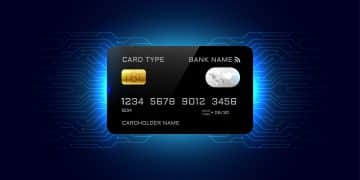Benefits of Using a Credit Card: Discover the Positives

Anúncios
In today’s world, the use of credit cards has become a common and convenient practice worldwide.
This small plastic tool not only simplifies financial transactions but also offers a host of benefits that many of us may not always consider.
From flexibility in purchases to additional benefits offered by issuers, the credit card can be a valuable ally in personal finances when used responsibly.
In this article, discover the benefits of using a credit card and what it has to offer you!
What are the benefits of using a credit card?
There are several benefits associated with the responsible use of credit cards. They can be enjoyed as long as you use the tool wisely.
So, we’ve separated everything that the credit card can bring in benefits for you. Take a look now!
Building credit history
One of the most important benefits of responsibly using a credit card is the opportunity to build and strengthen credit history.
This history is crucial for future financial transactions. Such as obtaining loans to finance a car, buying a home, or even securing better interest rates on credit cards and personal loans.
By using the credit card responsibly, making timely payments, and keeping balances low relative to the credit limit, users can demonstrate to creditors their ability to manage credit effectively.
This can result in a higher credit score, which is essential for obtaining approval for new credit and benefiting from more favorable conditions.
Additionally, a good credit history can be an advantage when renting a property, signing utility contracts, or even applying for a job, as many employers consider the financial health of candidates during the selection process.
Bonuses and rewards
Many credit cards offer bonus and reward programs that can result in tangible benefits for users.
These programs vary depending on the card issuer and may include cashback, airline miles, loyalty points, or discounts on specific purchases.
Cashback programs, for example, offer users the opportunity to receive back a percentage of the amount spent on their purchases.
This direct savings can be significant over time, especially for those who use the card regularly for everyday expenses.
Airline miles programs allow users to accumulate miles that can be redeemed for airline tickets, class upgrades, or even hotel stays.
For frequent travelers, these programs can result in substantial savings on future trips.
Additionally, loyalty points programs offer users the opportunity to accumulate points that can be redeemed for a variety of products and services, such as electronics, home goods, event tickets, and more.
Possibility to earn cash back
One of the most popular attractions of modern credit cards is the possibility of earning cash back on your purchases.
This is a straightforward way to save money, as users receive back a percentage of the amount spent on their transactions.
Depending on the card and associated program, cashback can range from 1% to up to 5% or more in certain purchase categories.
This cash return can represent significant savings over time, especially for those who regularly use the credit card for everyday expenses such as groceries, fuel, and utility bills.
Some cards also offer cashback on rotating or seasonal categories, allowing users to maximize their savings by adjusting their spending patterns according to the available offers.
Additionally, many cashback programs have no limits on the amount that can be accumulated, providing users with the freedom to make the most of the benefits offered.
Purchase protection
Credit cards often offer additional protection for purchases made with the card. This can include a variety of benefits, such as extended warranty, protection against accidental damage, or theft of purchased items.
Extended warranty offers users the peace of mind that their products will be covered for an extended period beyond the manufacturer’s standard warranty.
This can be especially useful for electronics and appliances, ensuring that users are protected against failures after the original warranty expires.
Additionally, accidental damage or theft protection can offer reimbursement or replacement for items that are damaged or stolen within a certain period after purchase, typically covering everything from electronics to clothing and accessories.
These additional benefits provide users with an extra layer of security and peace of mind when making purchases with the credit card, ensuring that they are protected against unforeseen events that may occur after the purchase.
Digital tools for monitoring
With the advancement of technology, many credit card issuers offer advanced digital tools to help users monitor and manage their finances more effectively.
This can include intuitive mobile apps that allow users to view their balances, recent transactions, pay bills, and even receive real-time alerts about suspicious activity on their accounts.
Additionally, some digital tools offer personalized budgeting features, spending analysis, and insights into consumption patterns, allowing users to have a clearer view of their finances and identify areas where they can save or adjust their spending habits.
These digital monitoring tools not only make it easier to track finances but can also help users make more informed financial decisions and stay in control of their consumption habits.
But when not to use a credit card?
Although credit cards offer a range of benefits, there are times when their use may not be the best option.
If you have difficulty controlling your spending or have a tendency to make impulse purchases, using a credit card can lead to unnecessary debt.
In these situations, it’s best to resort to payment methods that limit your immediate spending, such as cash or debit cards.
If you’re unsure whether you’ll be able to pay the full balance of the credit card at the end of the month, it may be best to avoid using it to avoid interest and financing charges.
Accumulating credit card debt with high-interest rates can lead to a difficult cycle of debt to get out of.
Using the credit card close to or above your limit can harm your credit score and increase the interest rates you pay.
Keeping your balances below 30% of the available credit limit is generally recommended to maintain good financial health.
Some establishments may charge additional fees for credit card payments. In these cases, it may be more economical to pay with cash or debit card to avoid extra fees.
If you’re considering making a large purchase and are uncertain about your future financial situation, it’s wise to avoid committing to long-term payments on the credit card.
Unexpected situations, such as job loss or unexpected medical expenses, can make it difficult to pay off these balances.
Use your card wisely!
While credit cards offer many benefits, it’s important to use them responsibly and carefully consider your financial situation before making a credit purchase.
Avoiding excessive use of the credit card and recognizing the moments when other payment methods may be more appropriate will help keep your finances under control and avoid debt problems in the future.
Now that you know the benefits of using a credit card, it’s important to pay attention so that you can use it consciously and be sure that you will make good use of this financial tool.
Put it into practice and enjoy more tips on our website!





